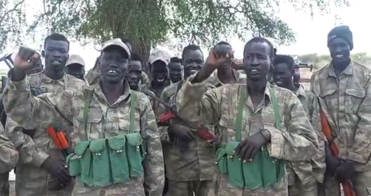The recent conflict in Nasir was not a random outbreak of violence, nor was it a spontaneous reaction to local grievances. Rather, it appears to be a calculated provocation orchestrated by elements within the government, motivated by reasons known only to them, but increasingly clear to a discerning eye.
There is no historical precedent, anywhere in the world, where a government has mobilized untrained tribal militias, armed them, dressed them in national army uniforms, and deployed them into civilian regions without formal military training or integration into the national forces. This alarming move suggests a deliberate intent to ignite chaos and incite intercommunal violence in Greater Upper Nile to keep the region busy since the government perceives it as a threat to all its plans and policies.
This was not a case of poor judgment or miscalculation. It was a strategic maneuver. By deploying armed tribal groups into vulnerable areas, particularly in a region as volatile and historically sensitive as Upper Nile, the government has signaled its readiness to trade national unity for political survival.
The goal may be multifaceted; to derail the fragile peace agreement, to divert national attention from mounting internal failures, or to engulf the Greater Upper Nile region in conflict, thus neutralizing it as a political threat and silencing calls for change.
South Sudanese must examine this situation with wisdom and depth, not with the short-sightedness that such schemes rely upon.
We must ask: Who benefits from this chaos? Who profits from the bloodshed of our youth and the destruction of our communities? The answers to which will all point to the ruling regime that is desperate to maintain its grip on power at any cost, even if it means setting tribes against one another to ensure no united front can challenge its authority.
As this orchestrated conflict unfolds, the regime’s succession plan inches forward under the cover of war. While the nation bleeds, Uganda continues to quietly exploit our resources, expand its influence across our borders, and exert indirect control over South Sudanese affairs. Our sovereignty is being eroded, not through foreign invasion, but through internal betrayal masked as governance. What is happening now is placing more sense into the claim that Uganda must have played a part in Dr. John Garang’s death, so that they can install a puppet they can manipulate and use to their interest, since Garang was unshakeable and unmanipulable.
Now more than ever, South Sudanese must rise with clarity and unity. We must reject the manipulation of tribal identities for political gain. We must see beyond the smoke of war to recognize the hands that lit the fire. Failing to do so will allow the regime to rule unchecked for more decades, while our people remain divided, exploited, and disenfranchised.
This is a pivotal moment in our history. Let us not allow ourselves to be tools in a game designed to weaken us. Let us promptly reject this game as a nation.
The plan is deep and bears dangerous consequences.
The writer is a concerned South Sudanese citizen.
The views expressed in ‘opinion’ articles published by Radio Tamazuj are solely those of the writer. The veracity of any claims made is the responsibility of the author, not Radio Tamazuj.




